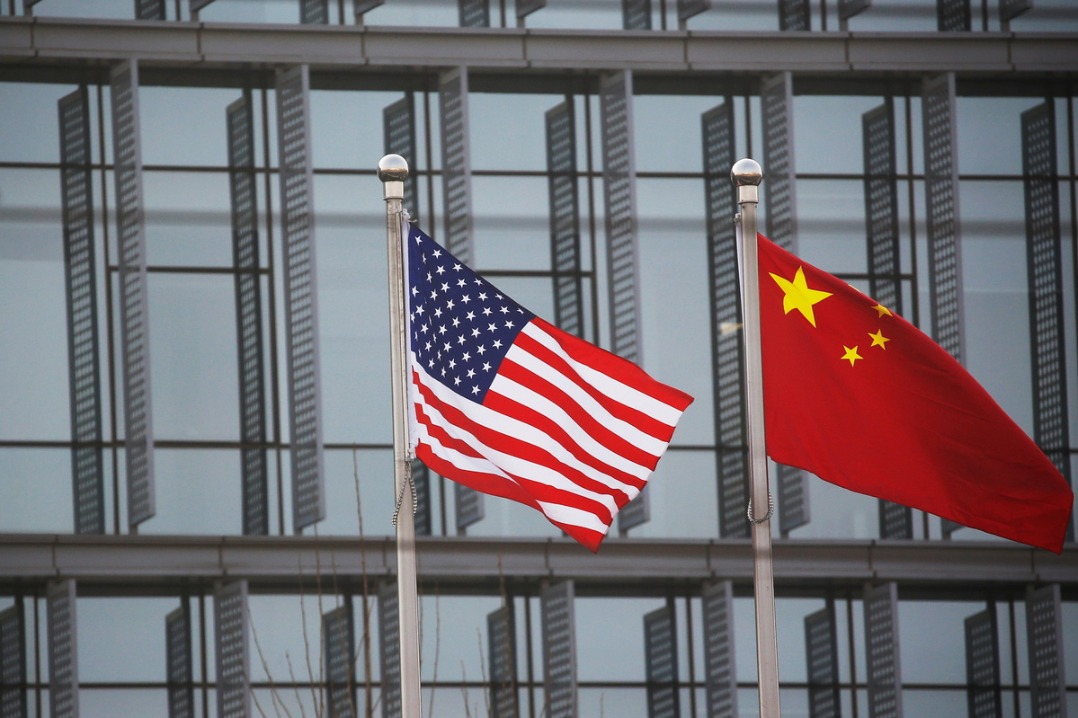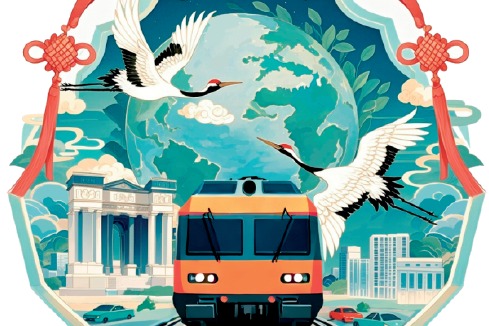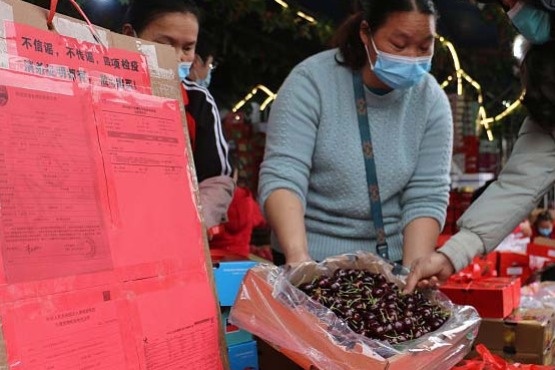Germany should put its weight behind EU autonomy


German Foreign Minister Annalena Baerbock's ongoing visit to China marks her second visit to Beijing. During her two-day stay, Baerbock plans to hold talks with Chinese Foreign Minister Wang Yi, which will be their fourth this year — they also had talks during her previous visit and in Munich and New York. Baerbock is also scheduled to co-chair with her Chinese counterpart the seventh round of the China-Germany Strategic Dialogue on Diplomacy and Security.
Considering that the two countries' state leaders have met twice this year — in Beijing and Rio de Janeiro — and they have agreed to further consolidate the 10-year-old Sino-German comprehensive strategic partnership through more win-win cooperation, it is fair to say that bilateral ties have maintained steady and healthy development featuring frequent exchanges and mutual trust despite the vicissitudes of Sino-EU relations.
That Germany strongly opposes the European Union levying steep "anti-subsidy" duties on Chinese-made electric vehicles also consolidates Beijing's confidence that Berlin is a reliable partner it can work with to uphold free trade and economic globalization and promote multilateralism in global governance.
So after Baerbock said that "China is opposing our core European interests with its economic and weapons aid to Russia", in a statement ahead of her visit — a claim she also made before meeting with the Chinese side previously, some Western media outlets hastily, as before, tried to define that as the whole of the Sino-German relations, ignoring the fact that, despite Baerbock's tough stance on the Ukraine crisis, she cannot afford to use her trip as an opportunity to lecture her hosts.
As a matter of fact, what Germany is hoping for is that China will exert any influence it may have on Russia, to end the Ukraine crisis at an early date. In other words, the truth, which Baerbock should also accept, is that the Ukraine crisis cannot be resolved by either party winning the conflict on the battlefield, only political means.
But before trying to dictate to China what it should do in its normal economic and trade cooperation with Russia, Germany should bear in mind that China-Ukraine ties also remain stable, and it should reflect on the effects and rationality of its one-sided US-led pro-Ukraine approach that has technically served to fuel the escalation of the conflict in a direction of no return.
China calls for not only an early end to the Ukraine crisis but also the establishment of a lasting, balanced and workable peace mechanism in Europe. That also serves Germany's interests. It does not take weapons and sanctions to realize these goals but wisdom, flexibility, vision and foresight.
Given her close relations with Washington and other China hawks in the European Union and NATO, Baerbock should be well aware of the nature of the Ukraine crisis being a geopolitical game orchestrated and prolonged by the United States, with the intention of trying to kill three birds with one stone — weakening Russia, controlling Europe and entangling China.
That Lithuania, an EU and NATO member, actively threw its weight behind the US' "Taiwan card" by announcing on Monday that it would list the relevant diplomatic personnel of the Chinese mission in Vilnius as "persona non grata" and demand they leave the country within a certain period of time, should prompt major EU players such as Germany to play a leading role in the bloc to uphold its strategic autonomy in handling relations with China.
Sixty-three percent of sampled EU citizens are increasingly skeptical of the US, as a new survey after the US presidential election shows, and believe it is time for the bloc to pursue its own foreign policy and reduce ties with Washington. Nearly half of the respondents no longer see the US as their most important ally, preferring other countries in the world, such as the United Kingdom (13 percent) or China (10 percent).
With Germany restricting its assistance to Ukraine, the top German diplomat should make good use of her China trip to seek the possibility of making breakthroughs in the two major countries' coordination to accelerate a political settlement of the Ukraine crisis.

































